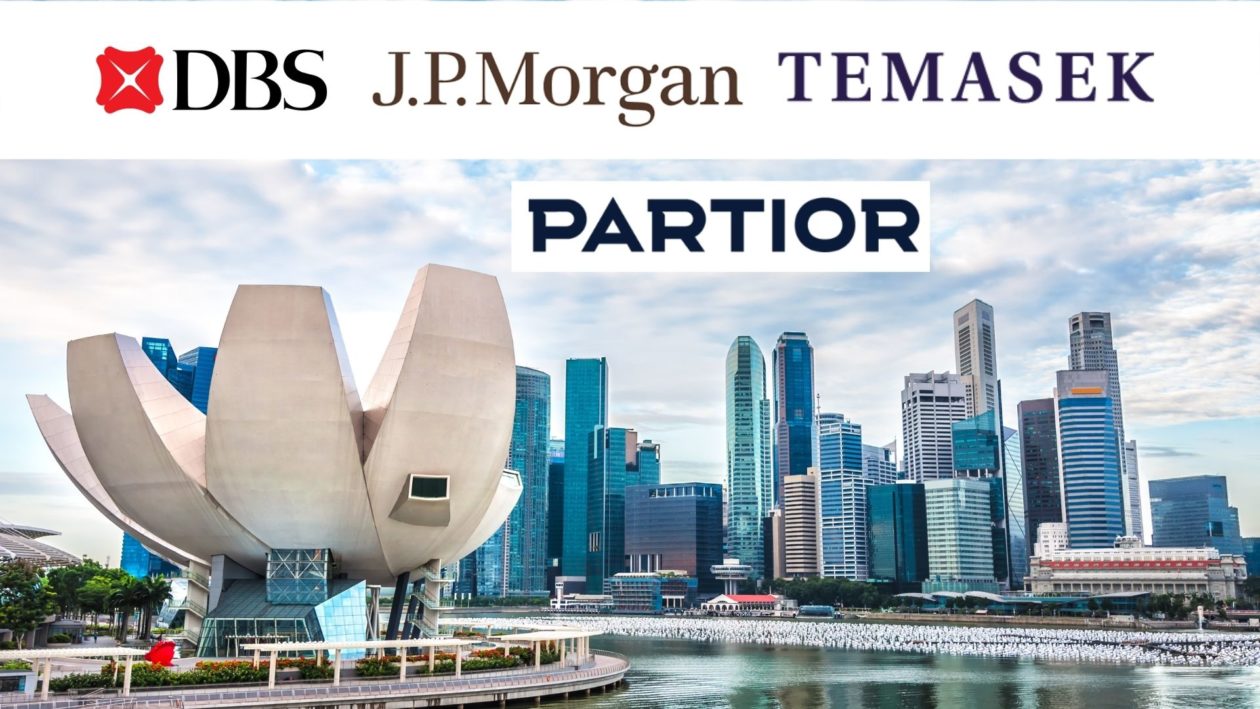Partior, an open blockchain-based clearing and settlement platform that was incubated in part by the government of Singapore, today announced that it is operational and had achieved end-to-end settlements with participating banks in Singapore dollar (SGD) and U.S. dollar (USD) of less than 120 seconds — a significant reduction from an average of two days typically needed for such transactions.
Global cross-border transactions are expected to reach US$156 trillion in 2022, and the Partior platform aims to solve pain points in payments — such as slow settlement speeds and expensive transaction fees — for financial institutions by digitizing commercial bank money and using an “atomic,” or instant model to replace the sequential way payments are settled currently. This would cut the time needed to settle the transactions between banks from days to seconds, which would free up liquidity and lower settlement risk. Using the platform also potentially reduces the need for intermediaries and brings cost savings.
With its platform now operational, Partior is now focused on scaling to more partners and fiat currencies, including the euro, British pound and Japanese yen. According to Partior, Bank ABC (Arab Banking Corporation B.S.C.) will be collaborating with J.P. Morgan to have J.P. Morgan send its payments through the Partior platform for the real-time settlement of payments from Bahrain to and from beneficiaries in other countries.
“Partior is wholly invested in the ideation and co-creation of the next generation of payments technology,” said Jason Thompson, Partior CEO, said in a statement. “We’re supporting an increasingly connected world whilst speeding up the process of payment validation and settlement within cross-border transactions. That will take investments of resources, technology and concerted collaboration as we navigate the greatest disruption in the history of money and comes at a significant moment of inflection for the financial services industry.”
In an interview with Forkast.News, Thompson said that the rise of cryptocurrencies — although still quite niche — showed that customers were demanding better alternatives. “We now have to bring the same level of transparency, cost and efficiency to regulated currencies. At the same time, by being regulated, the customer can be more protected,” he added.
Partior was focused on fiat and central bank digital currency (CBDC). “If we can achieve the goal of mass adoption and atomic settlement around the world, then our partners can offer their customers a lot better service,” Thompson said.
The inefficiency in the current payment system is a global problem, and for technology to be common across an industry, it had to be independent and the open platform would facilitate collaboration, Thompson added. “It’s not just about joining the network for global settlement, it’s important [partners] also join us in the co-creation because there’s going to be new problems to solve, be they operations, regulatory or technology problems.”
Formed as a joint venture by Singapore’s DBS Bank, U.S. investment bank J.P. Morgan and Singapore state-owned investment company Temasek, Partior’s creation was catalyzed by Project Ubin — a multi-year multi-phase experiment led by the Monetary of Singapore (MAS) in collaboration with the financial industry to explore distributed ledger technology (DLT) blockchain for domestic clearing and settlement of payments and securities.
Partior — which means “distribute” and “share” in Latin — built on the Ethereum-based ConsenSys Quorum blockchain.
“We want Partior to be established as a commercial platform that can help commercial bank digital money to be moved,” said Sridhar Kanthadai, head of wholesale payments, APAC, at J.P. Morgan, one of Partior’s shareholders, during the Partior launch event today. “The blockchain platform provides a number of other interesting ideas, such as programmability, immutability and instantaneous settlement.”
Kanthadai expects the common and open market infrastructure to spur further innovation across an entire range of financial settlement processes.
“A lot of financial services are redeploying their innovation center [to Singapore] because there is a culture of co-creation here that we work as industries to solve things,” Thompson said. “It’s a whole nation effort in the way that things operate in Singapore.”
See related article: JPMorgan, DBS Bank and Temasek partner on ‘game-changer’ blockchain for payments





